By Lee Brown
In the era of technology, it seems we’ve forgotten how to talk to each other and ask questions before making judgments. It’s becoming routine to see an article about today’s food supply with endless comments from folks who never took the time to ask a farmer about their food.
As a first generation rancher in Southeast Texas, I’ve faced numerous obstacles to raise my small commercial cattle herd. But no matter how difficult it may get, this business is something I have a passion for and it helps provide for my growing family.
No, my cattle aren’t treated as pets. Their purpose is to produce beef and hopefully to create a profitable income. But I do take care of my cow herd like I take care of my family.
I check on them daily—whether it’s in the scorching heat or in sub-freezing temperatures. They eat before I do, even on the holidays. I help mama cows give birth to their calves and vaccinate them to prevent disease.
But sometimes, even when I do everything possible to help them, cattle get sick. Just like my daughter and my wife sometimes come down with an illness.
When that happens, we call the cow doctor. If needed, we use antibiotics and other medicines prescribed by the veterinarian to get our cattle well. I provide our cattle proper health care, just as I do my wife and daughter.
These good management practices keep my cattle healthy and productive, while providing a great tasting and nutritious protein source for your family and mine.
The above post is from Lee Brown, a Texas rancher from Cleveland, Texas. Lee is one of four guest bloggers who are talking about food safety during Texas Food Connection Week, sponsored by Texas Farm Bureau, Feb. 16-22.

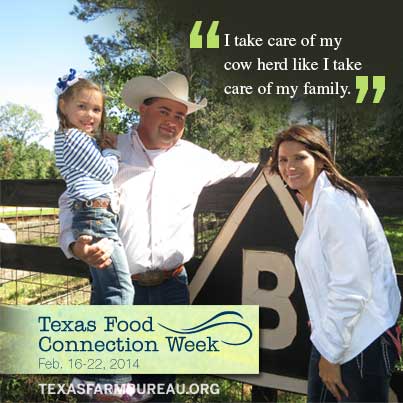
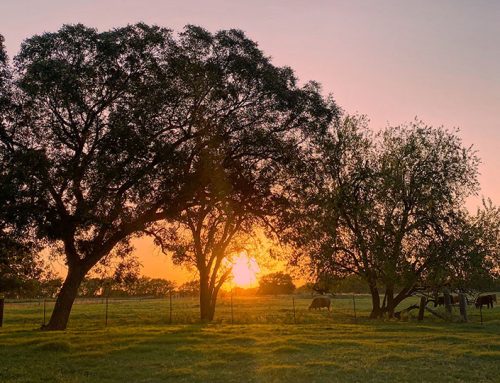
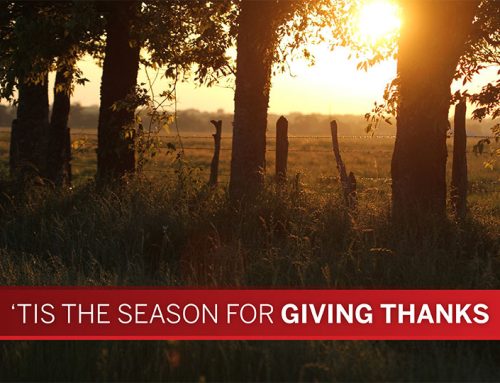
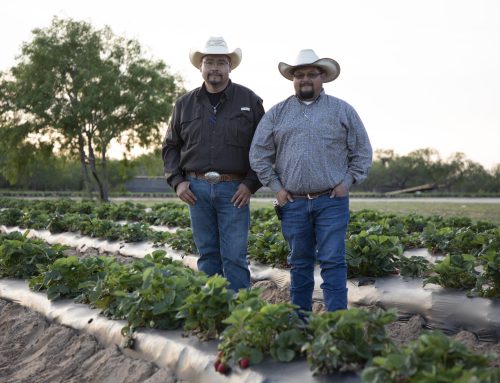
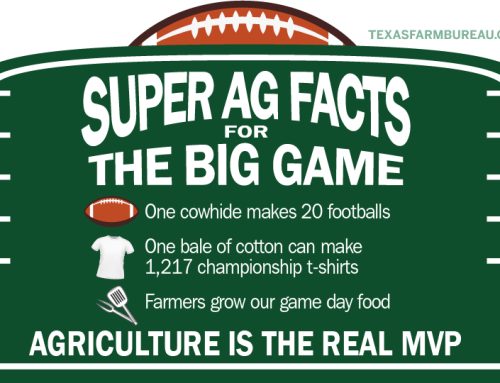
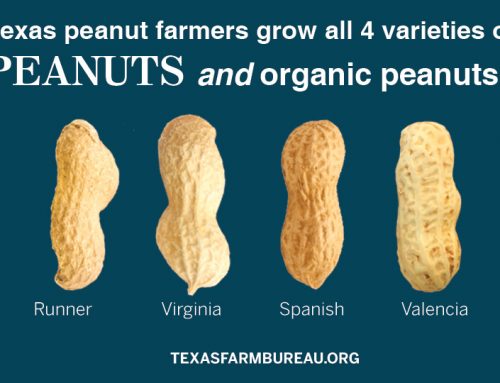




Leave A Comment